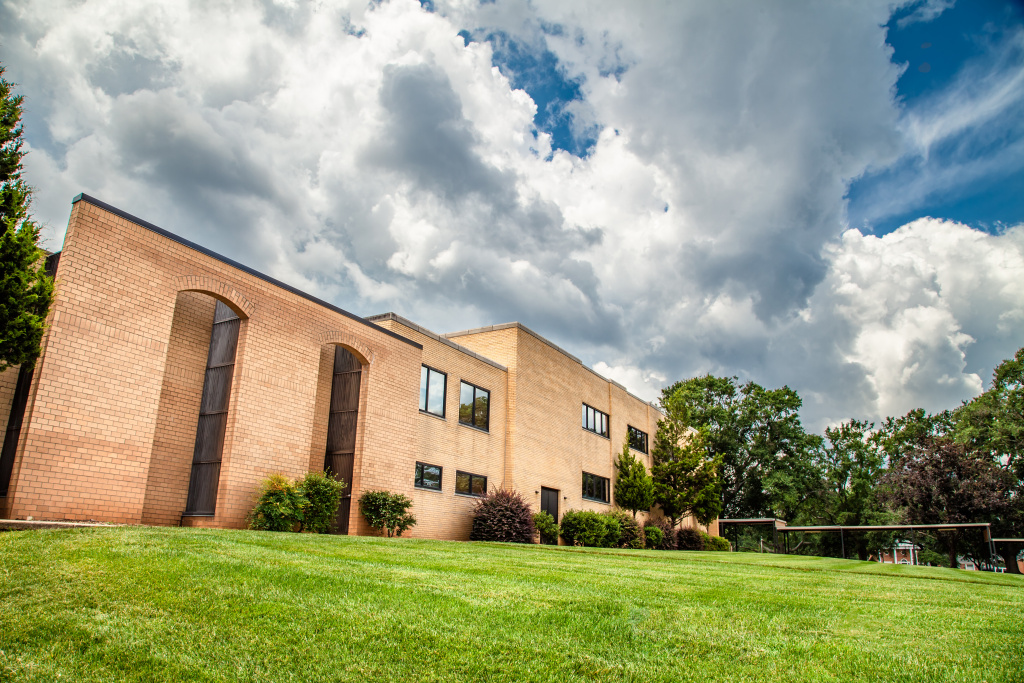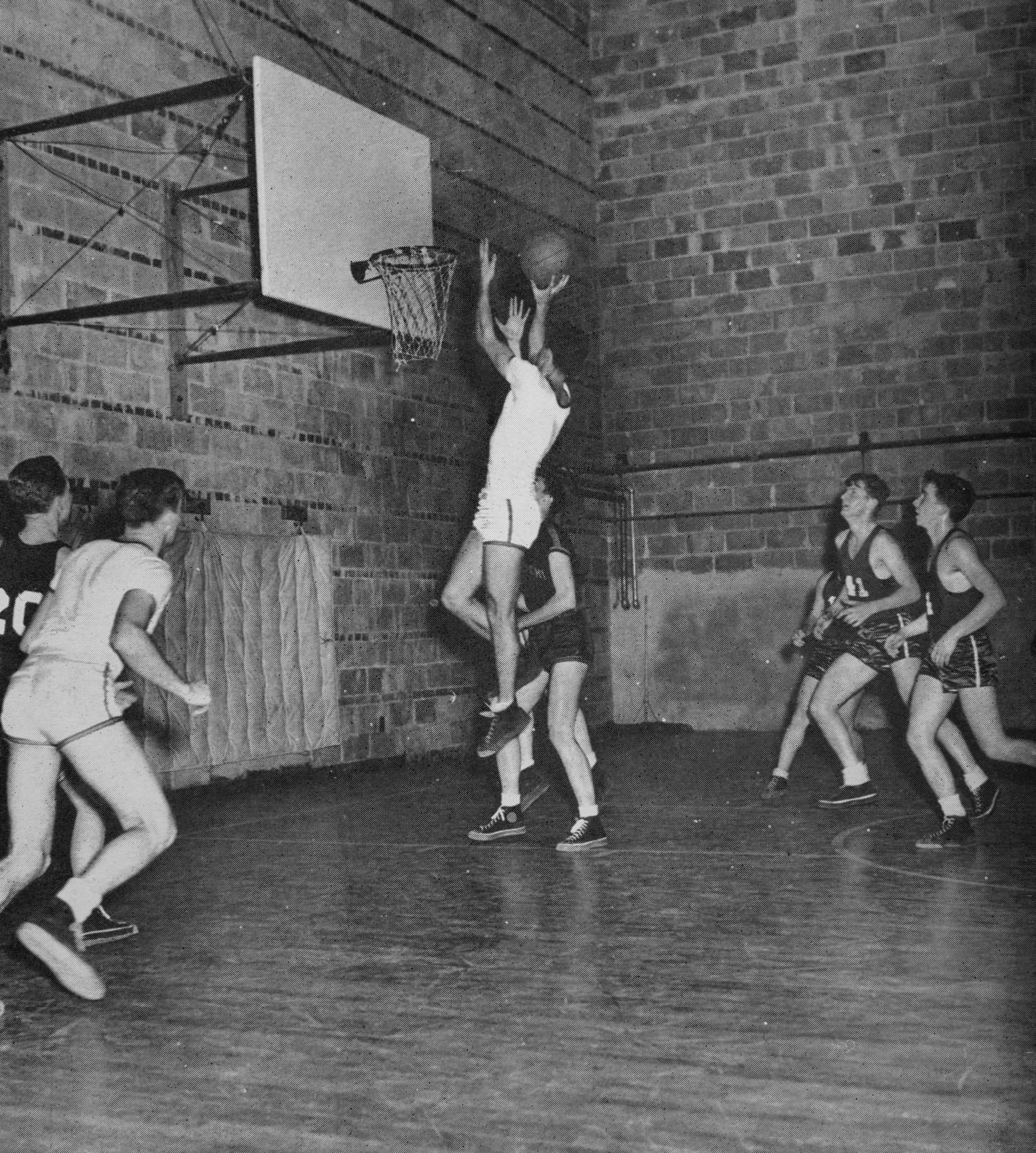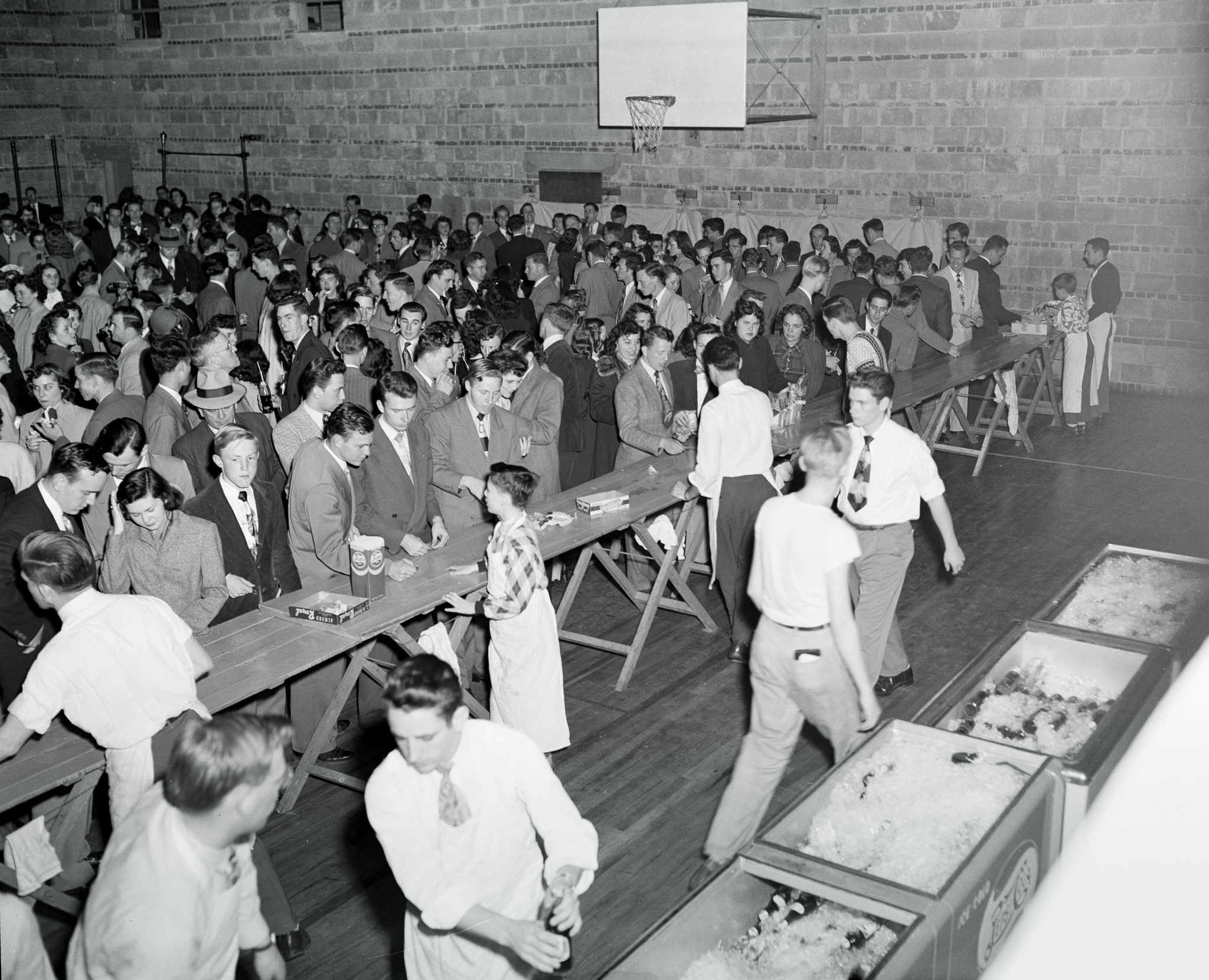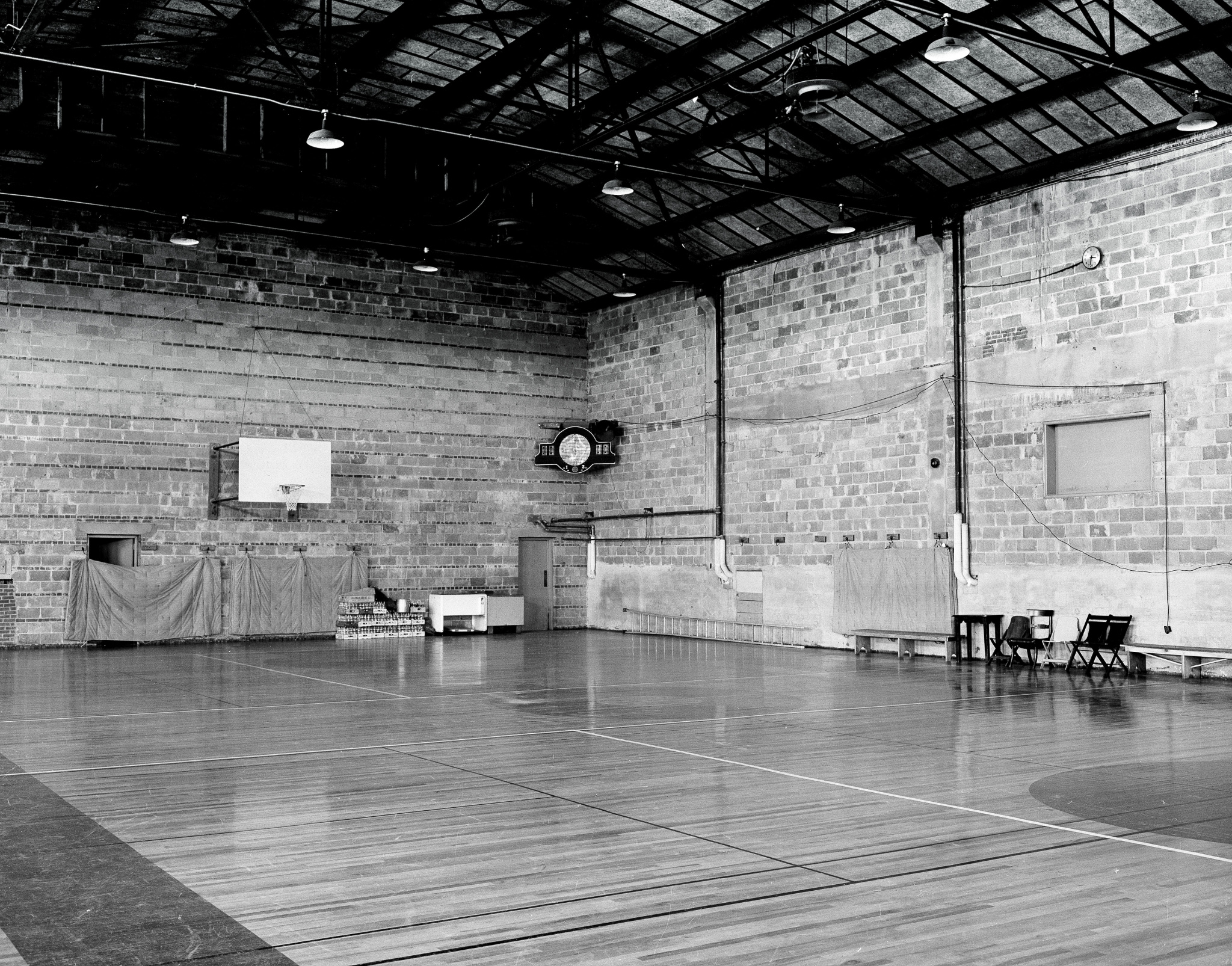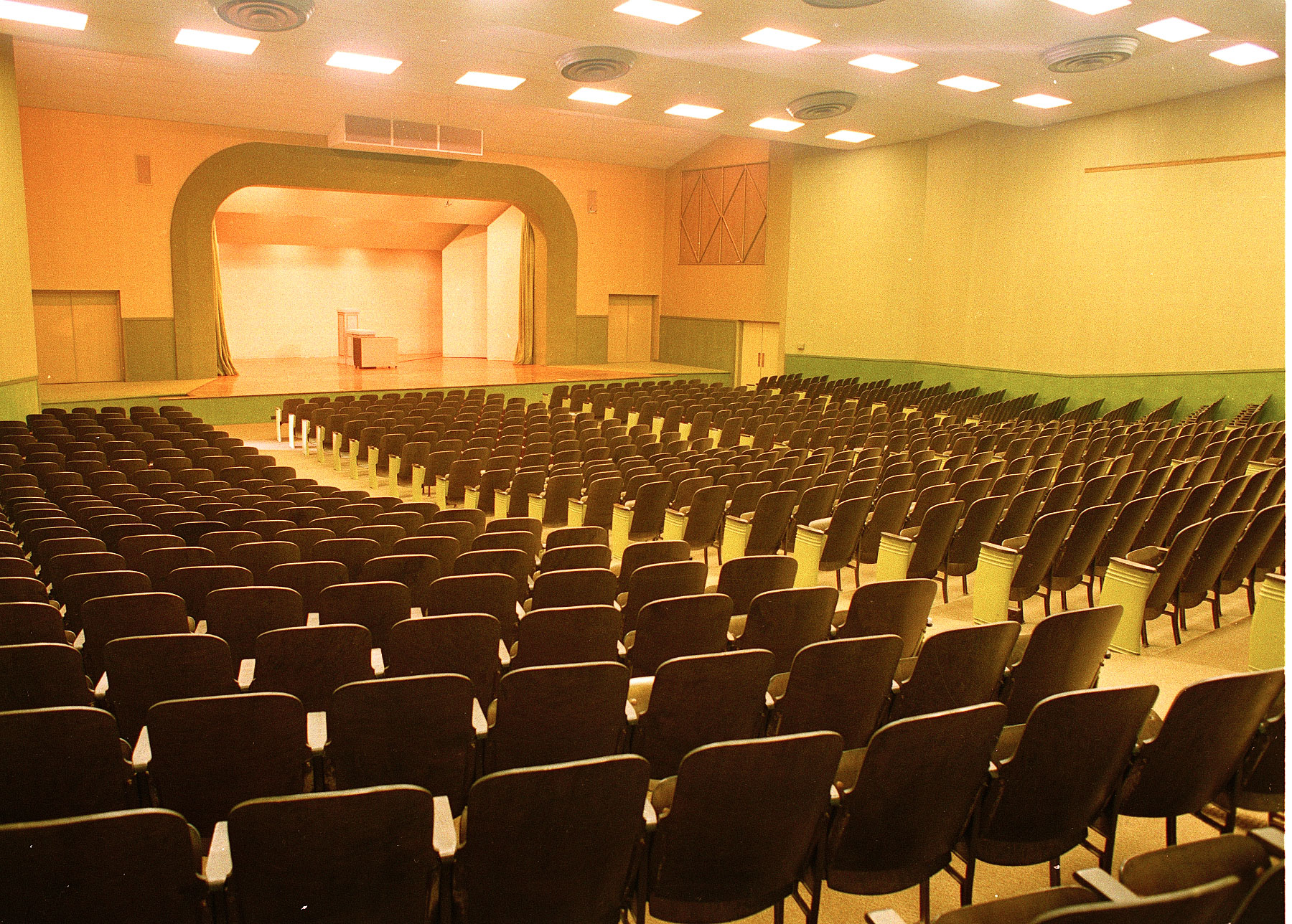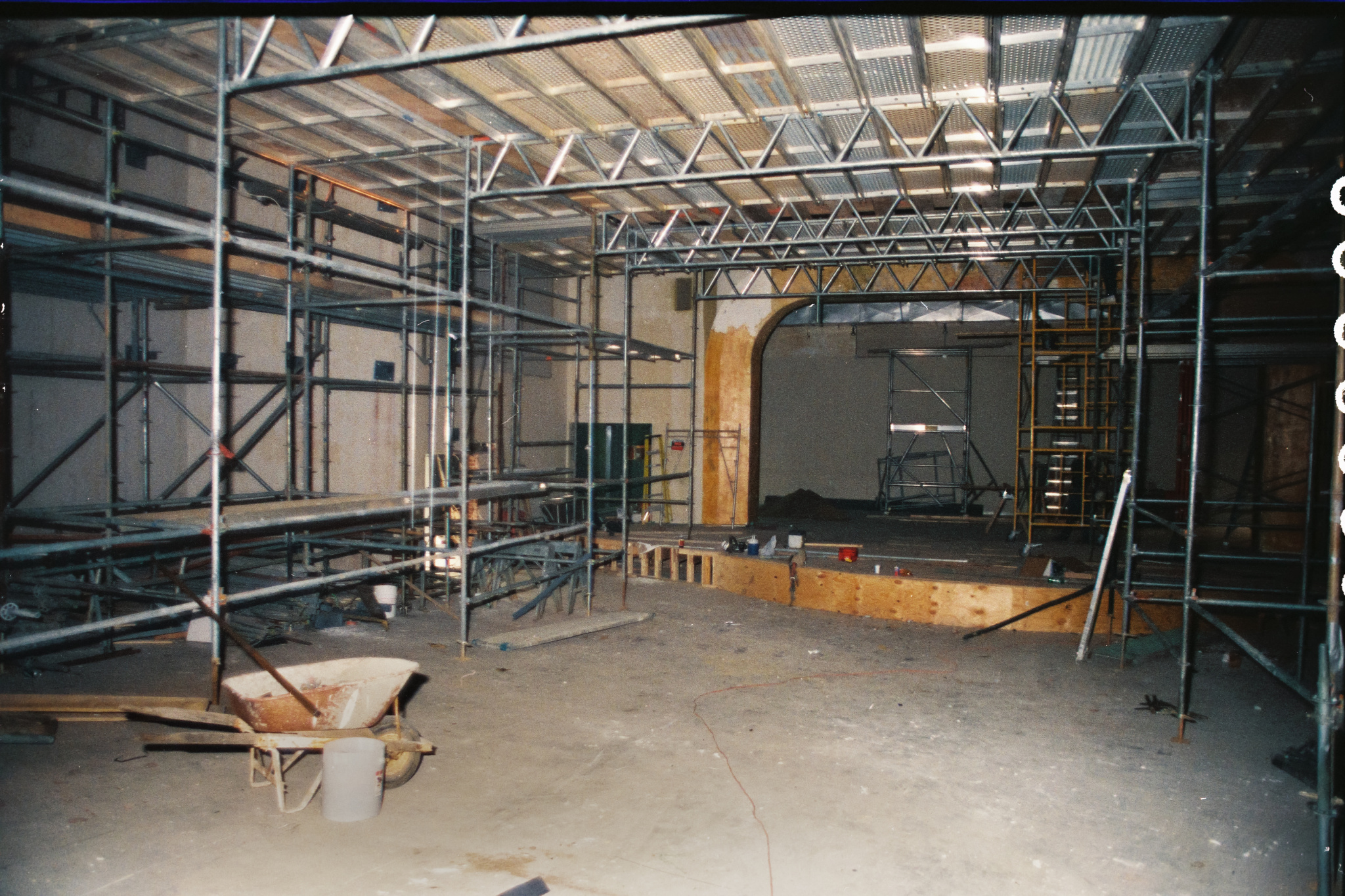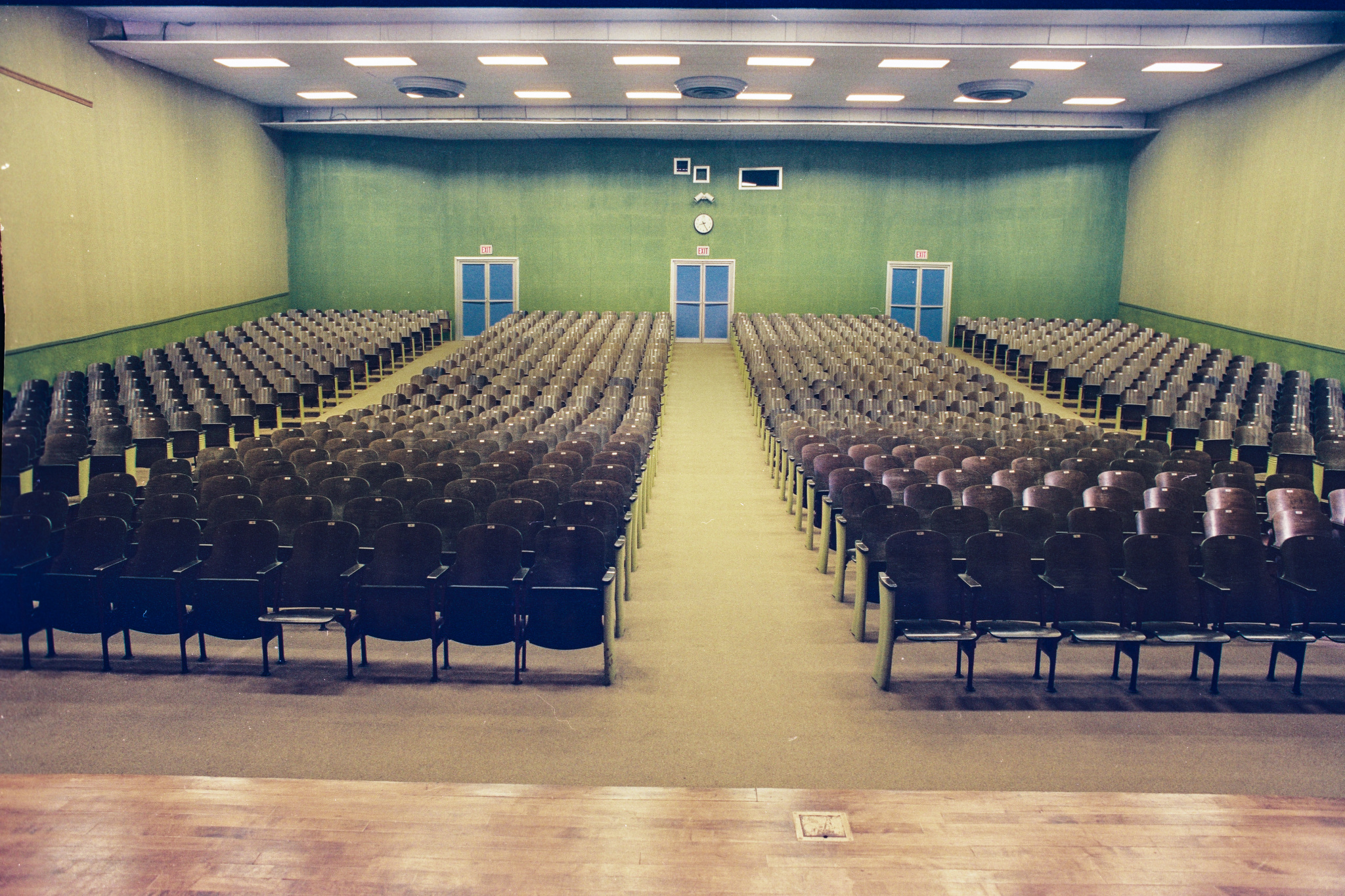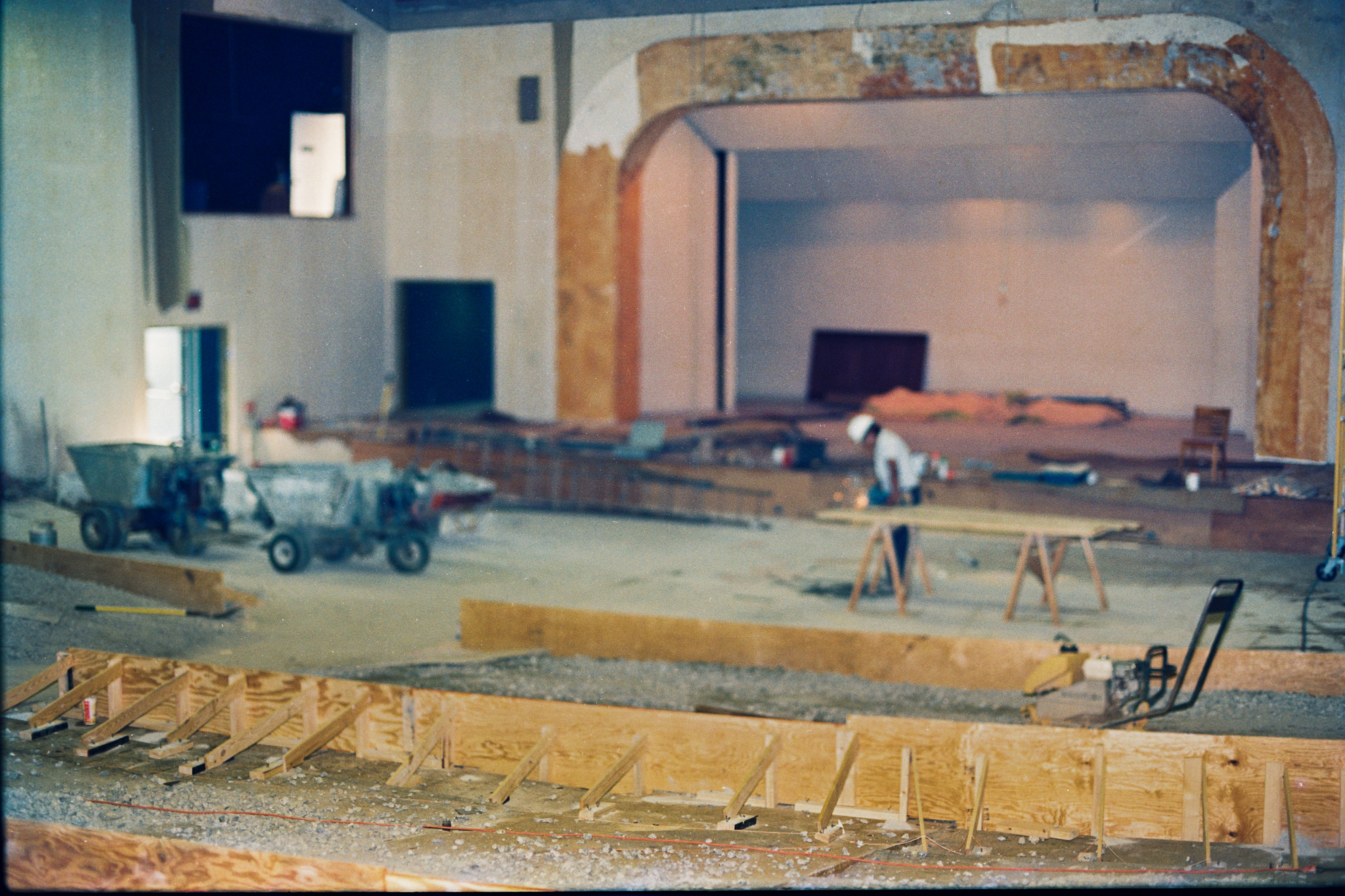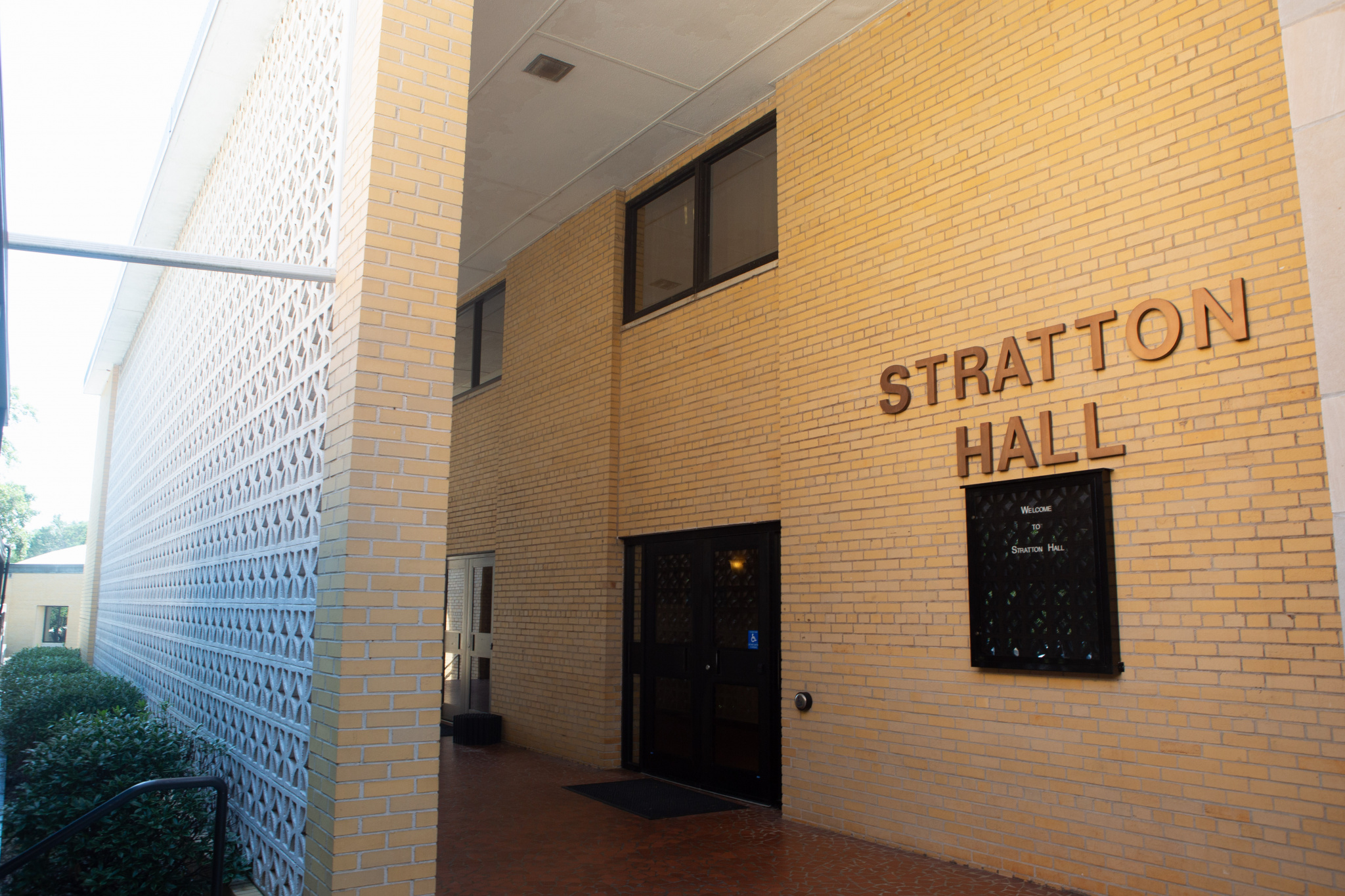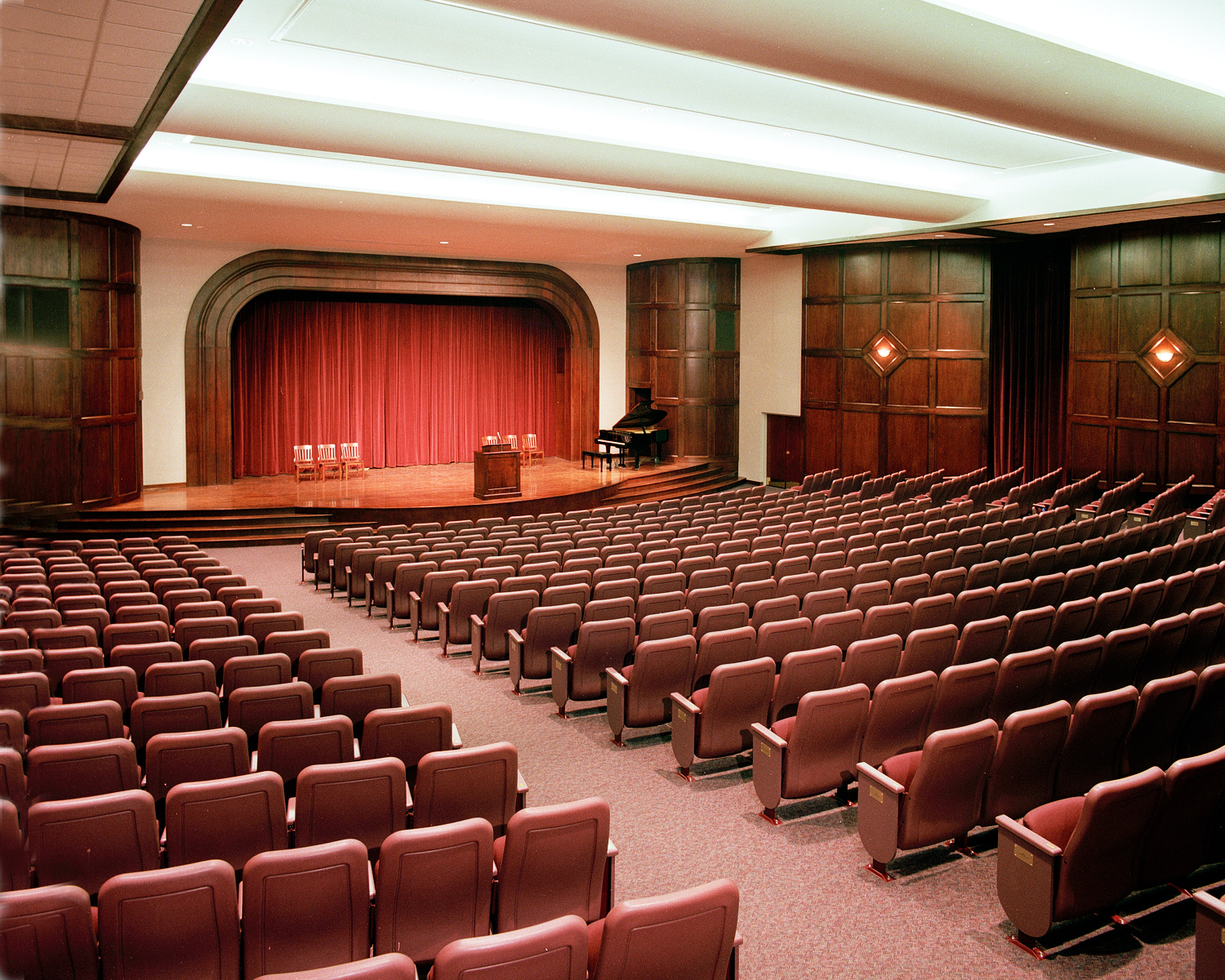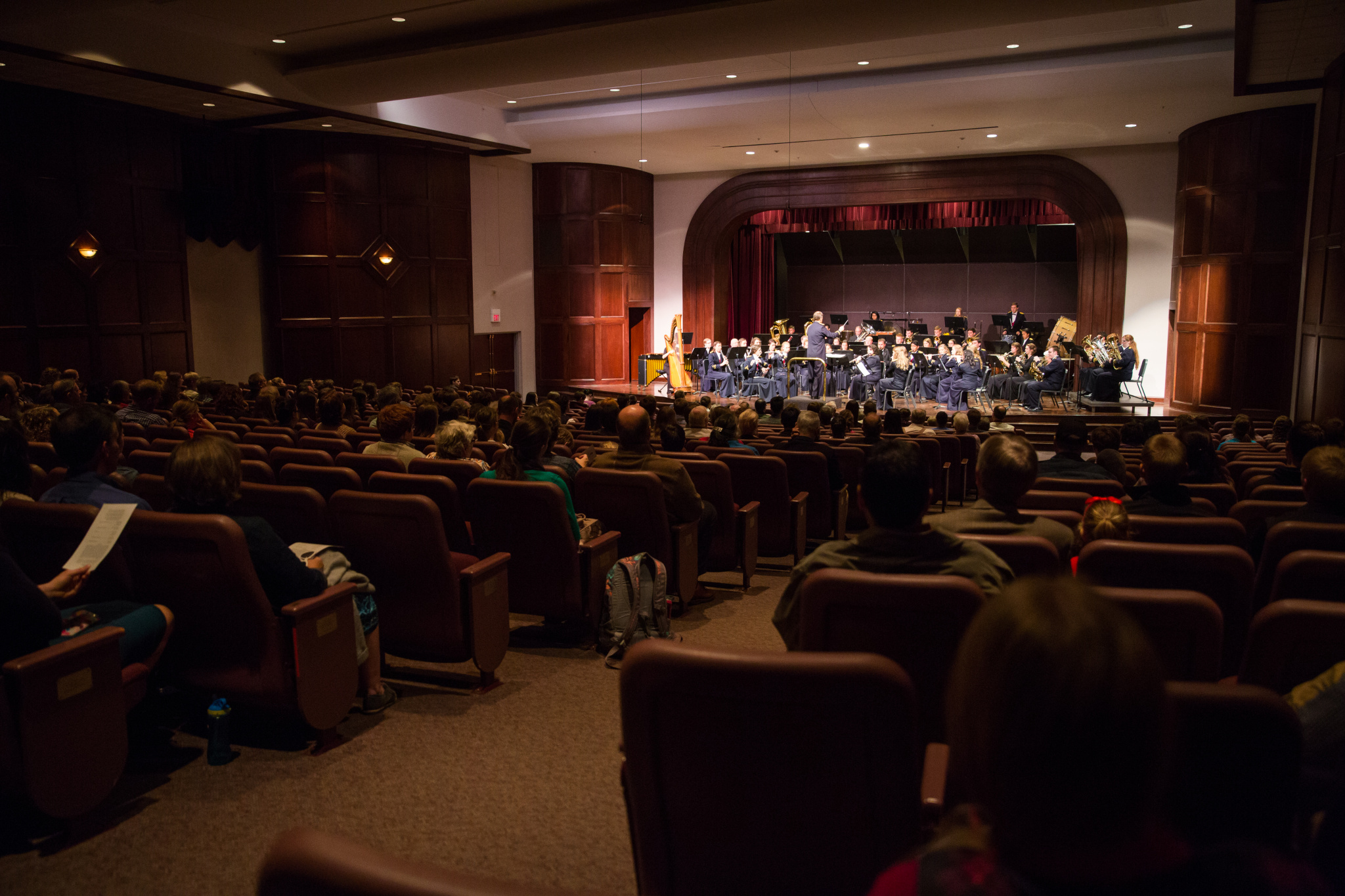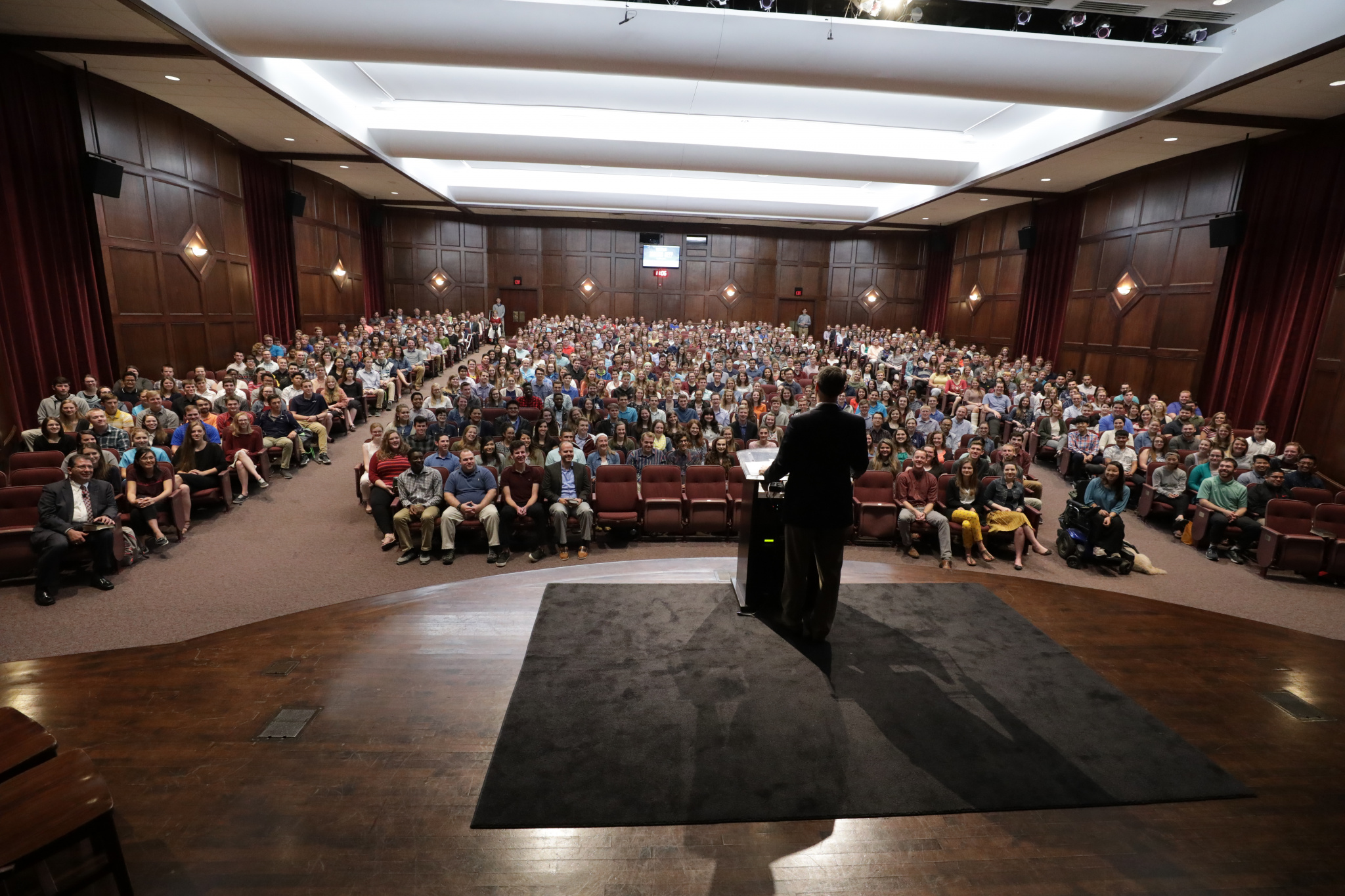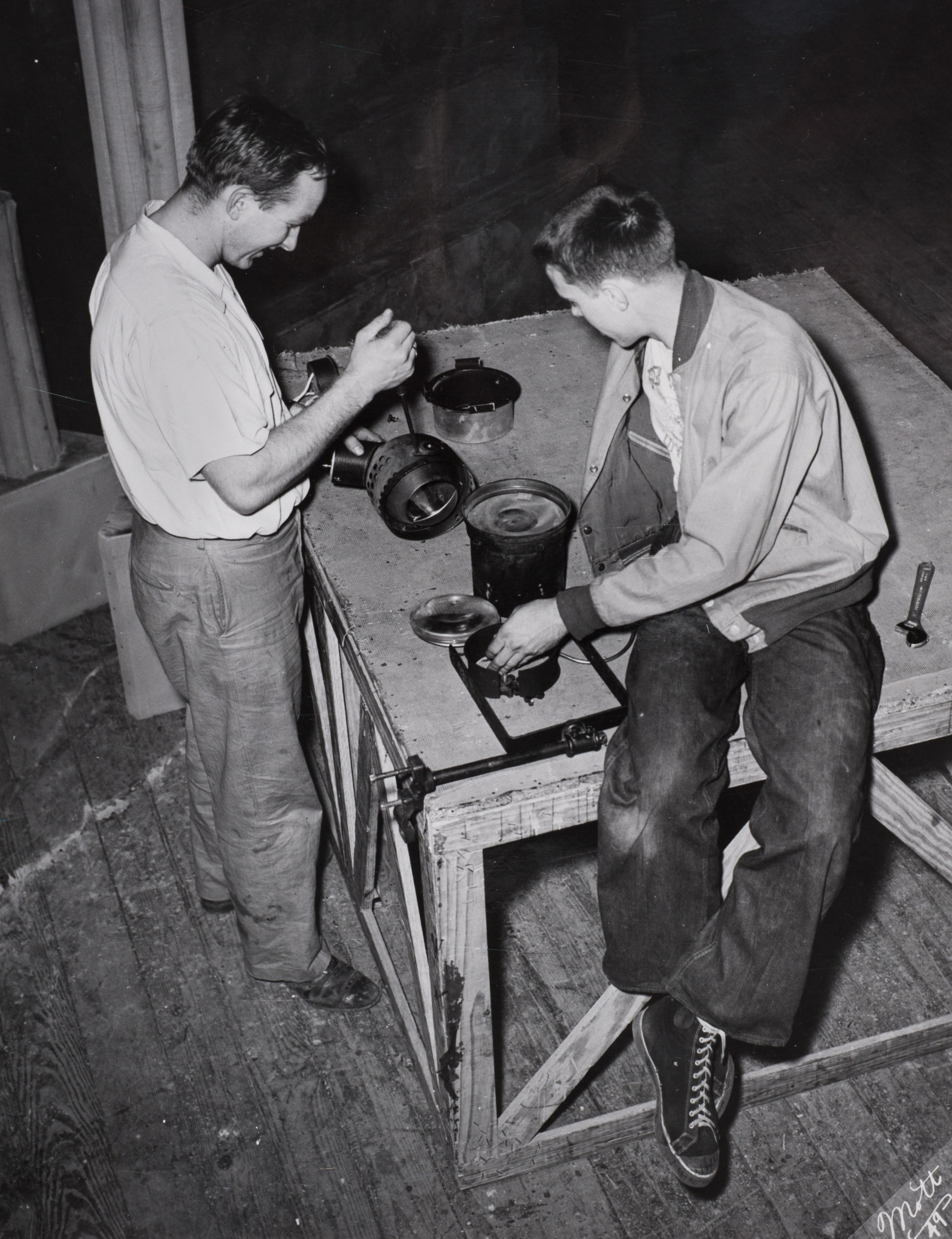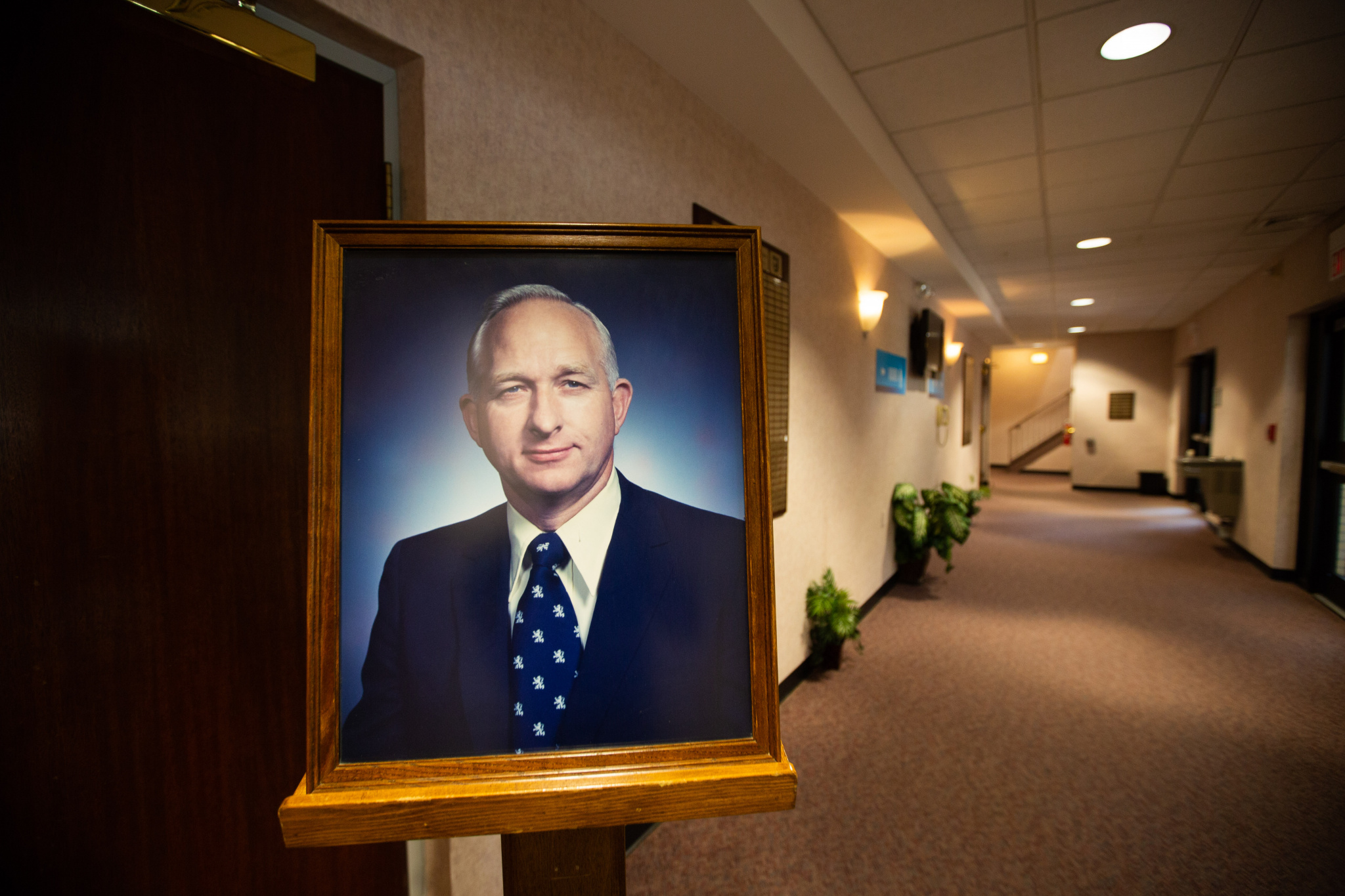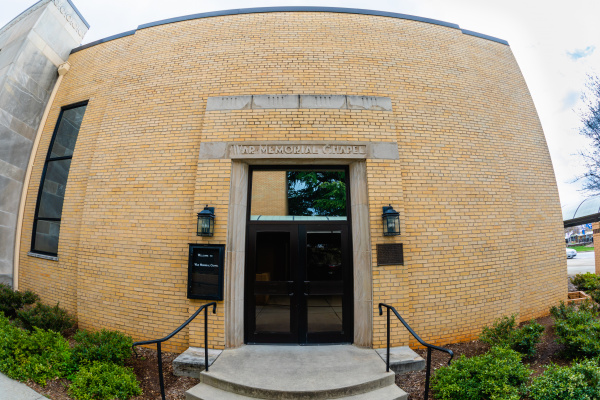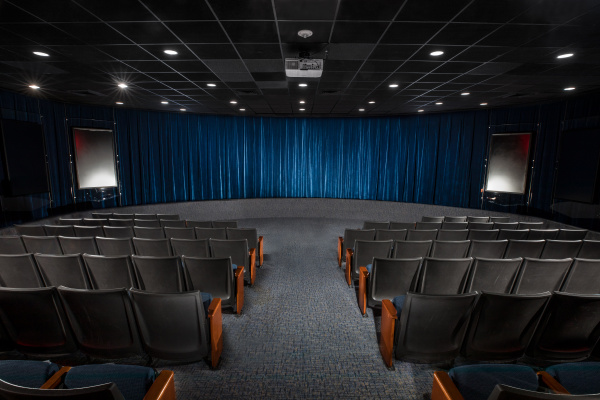For many, Stratton Hall rekindles memories of History of Civilization or even Dr. Edward Panosian. But Stratton Hall has more to its history than lectures, and it bears the name of another influential leader.
A Multipurpose Gymnasium
When Bob Jones University moved to Greenville in 1947, Stratton Hall was not a hall. It was the gym. It had a basketball court, two locker rooms where the stage now is, and offices upstairs. Not only did the gym serve as the sports center, but it was also the temporary location for chapel. Services were broadcast to War Memorial Chapel and Alumni 117 because the student body was too large for the gym.
This situation lasted until Rodeheaver Auditorium was completed later that fall.
Transformation to the Concert Center
Once a new gym opened in 1959, the old gym became the Concert Center. The walls were painted blue with red and yellow accents. And a stage, slope to the floor and 780 seats were installed, ready for use at the beginning of the fall semester in 1960.
The center then became a lecture hall, music hall and overflow room. Because the center regularly had an overflow for services, the Class of 1962 gifted the University a television camera for a closed-circuit system between Rodeheaver Auditorium and the Concert Center.
Stratton Hall – Renovated and Renamed
Other than a lime green remodel in the ’70s, the Concert Center saw no change. But after commencement in 1996, the “grotesque green monster” got an overhaul. With funds from the Bible Conference offering, workers gutted the interior, repoured the floor, added wood paneling to the walls and installed wider seats, accommodating 670 people. The changes improved the visual appeal as well as the amplification for musical performances.
The Concert Center renovations were completed that summer. It was then renamed Stratton Hall in honor of former stage manager Mel Stratton, who had recently passed away.
Mel Stratton
From Michigan to Greenville
Melvin Leroy Stratton was born on November 13, 1927, and grew up in Muskegon Heights, Michigan. After his parents were saved and began attending church, Stratton also became a Christian at a revival service when he was 10.
Stratton was born to work with his hands. He worked at a printing business afternoons after school and on Saturdays. He also made cabinets with his dad, a home builder. During his free time, he tore down auto engines for fun.
Stratton first learned of Bob Jones College when BJC students spoke at a youth ministry that his church was involved in. He became more familiar with the school through his high school friend who began attending Bob Jones Academy in the spring of 1946. The next semester Stratton began his freshman year at BJC. He took a job on stage crew, which he kept after the school moved to Greenville the next year.
In 1949, the stage had no manager because the staff had to shuffle to accommodate building projects on campus. The University decided to ask a stage crew student to be a staff assistant while finishing his degree. They chose Stratton. He served in that position for two years until he graduated in 1951 with a bachelor of arts in humanities.
While Stratton was still a student in 1950, he noticed a waitress, Gere Crandall, during a meal in the dining common around Thanksgiving. He promptly wrote her an invitation to go to Vespers with him, much to her confusion since she did not know who he was. However, they went on the date and got engaged a month and a half later. They were married on June 8, 1951, in Massachusetts. They then moved back to Muskegon, where Stratton got a job overhauling diesel engines at Continental Motors.
Back to Greenville
In April 1953, Stratton received a call from BJU’s business manager, R. K. Johnson, asking him to return as the full-time stage manager. Stratton returned to BJU on May 1. His first task was to prepare for Shakespeare’s Othello, produced three weeks after his arrival.
Stratton served at BJU for the next 41 years until God called him home on December 29, 1994, after having a heart attack while playing basketball at his church. His funeral was held in Rodeheaver Auditorium, where he had spent more than half of his life.
A Life of Ministry
Talent Behind the Curtain
Stratton’s abilities—his natural talent and years of work with engines and carpentry—equipped him to be BJU’s stage manager. No production was too big. Dr. Dwight Gustafson—former dean of the School of Fine Arts and Stratton’s colleague in their student and adult years—said, “Those of us who try to be creative in the stage business sometimes come up with ideas, and we have to find a person that can make it work. He was that type of person.”
His mind was made for putting things together. When the University bought the stage lifts from the Center Theater in New York, Stratton jotted down a few observations during the deconstruction. When the pieces arrived in Greenville, Stratton laid everything out behind Rodeheaver to figure out how to reconstruct the four lifts and the turntables, all without blueprints. In the process, he modified the lifts to create an extra turntable lift and the organ lift.
Stratton also used his gifts to serve others. He built frames for the Benjamin West paintings in War Memorial Chapel. And outside of work on campus, he fixed his coworkers’ cars in his own yard.
A Life of Character
Although he was physically talented, coworkers and students also remember him for his character. He led by example, earning the name “Chief” from his student workers. Rod McCarty (BA ’86, MA ’88)—a stage worker and Stratton’s successor as stage manager—was influenced by his example:
“When he walked across campus, he’d always pick up paper lying on the ground, and eventually we started doing it too. He never told us to pick up paper. He just did it. In fact, when we were with him, we would often pick up paper we saw so he wouldn’t have to.”
Brian Gottschall—a stage crew worker in the ’70s—also remembers his impact:
“He taught me more about godly life skills while I worked on stage crew than my academic classes combined. He was gentle in correcting me, yet consistent and firm, teaching by example how to be godly in heart, manly in character and Christlike in all.”
In 1981, Stratton received the Alumni Appreciation Award for investing so much of his life in BJU and students on his crew.
Stratton was also a leader in his church, serving as a deacon and in other ways.
All his life Stratton served backstage, away from the view of the audience. Yet Gustafson defined his character as “faithfulness, steady faithfulness to the work God called him to do.”


